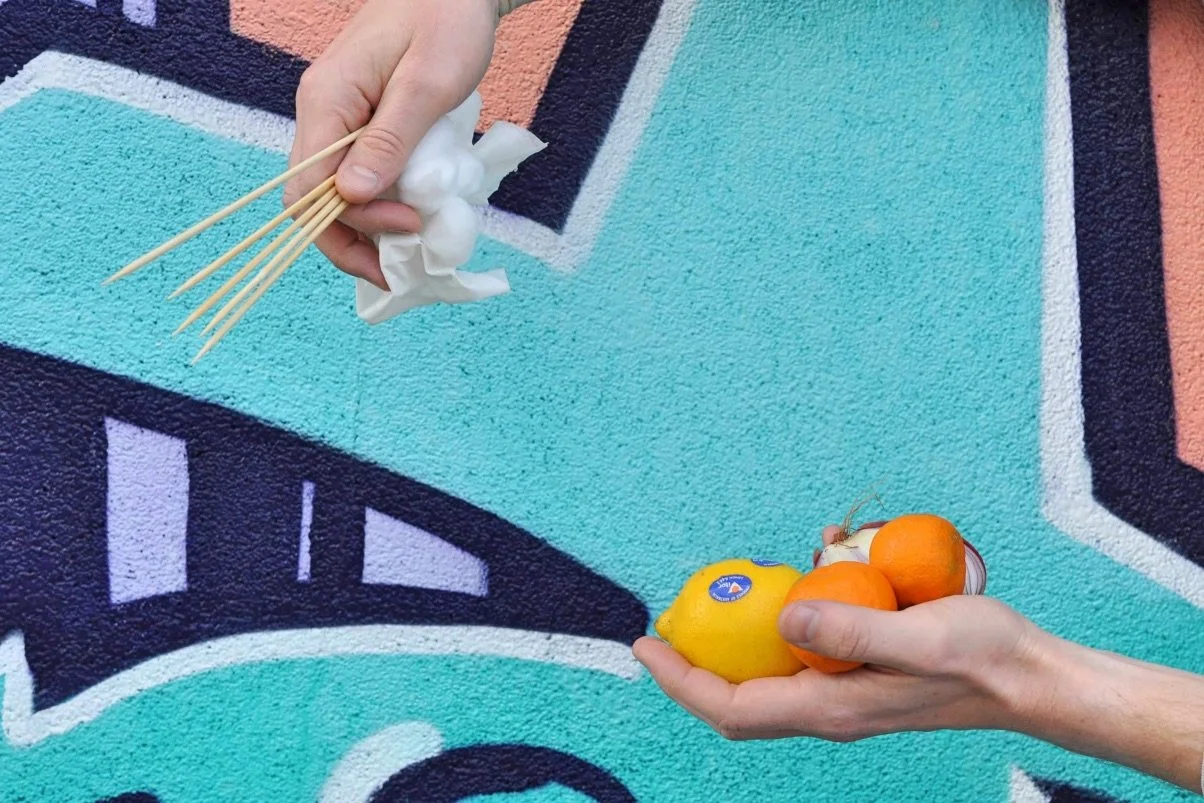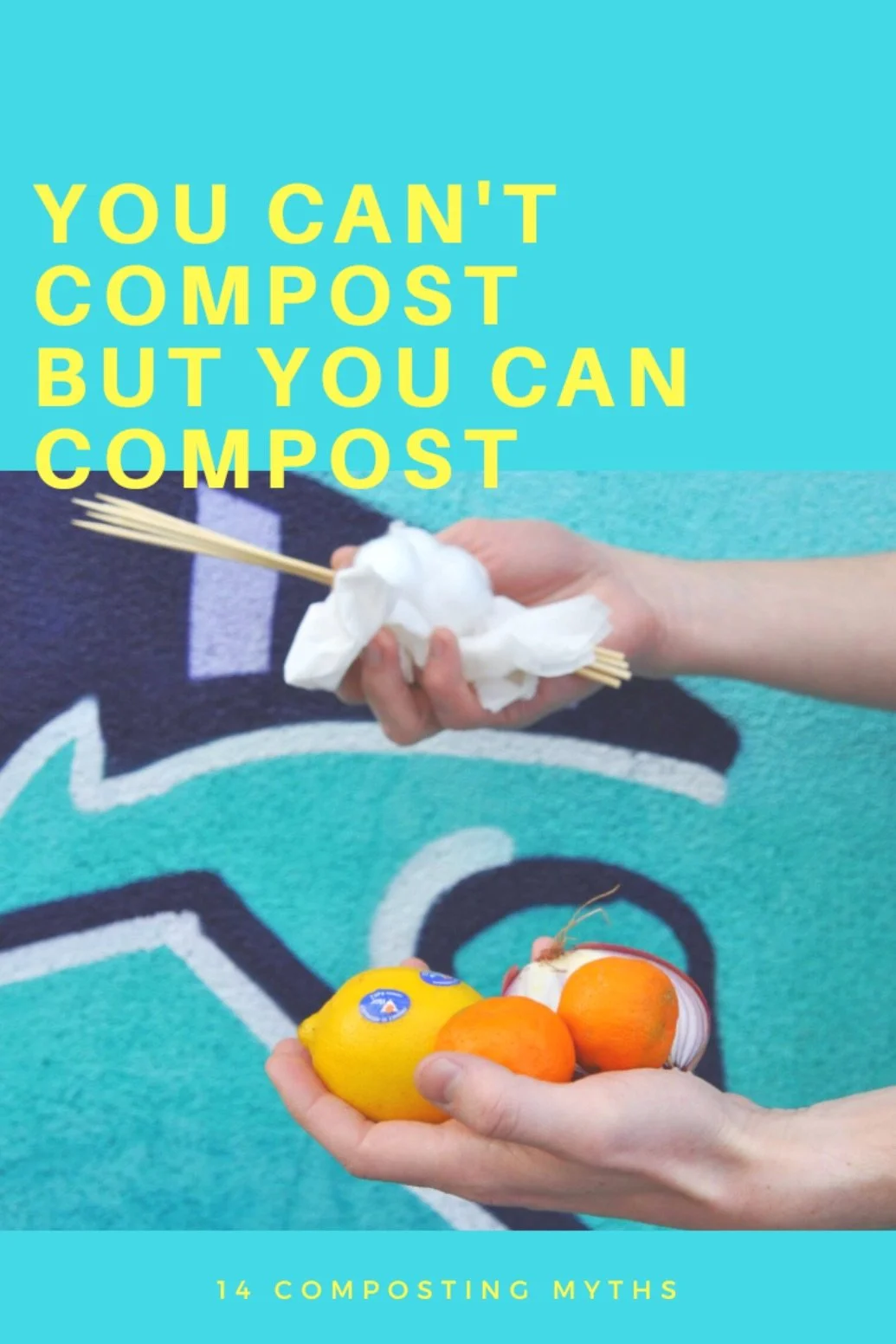You Can’t Compost But You Can Compost: 14 Composting Myths
Do you know really know what you can and can’t compost? Are you guilty of believing any composting myths? We break down the common composting myths so your compost breaks down.
We want to compost as much as possible, but there’s no point in putting items that won’t break down into your composter, bokashi bin or worm farm. You also don’t want to be putting stuff that you can compost into your landfill bin.
So we looked into common composting myths to ensure no hidden synthetics end up in the rich soil coming out of your composter and no compostable matter ends up in your bin.
MYTH 1: You can compost tea bags
You shouldn’t compost tea bags as they can contain synthetic materials and plastics, so it is best to break them open and only compost the actual tea leaves.
The bags themselves may not break down, depending on what they’re made of. So, if you’re unsure if they are made from biodegradable material, rather cut them open, compost the tea and chuck the bag in the bin.
MYTH 2: You can’t compost paper
You can actually compost most paper including newspaper, white paper and cardboard, but it is best to shred it and to avoid composting glossy paper or paper that is coated as it may contain toxins.
This is especially the case with greasy cardboard and paper that has been used to hold food, such as pizza boxes and brown paper bags. These cannot be recycled because the grease will contaminate the rest of the paper and it is best to compost these.
The paper that you probably shouldn’t compost includes receipts as these contain BPA, which could contaminate your soil. These are not recyclable either unfortunately.
Some inks used these days are soy-based and therefore natural and non-toxic and will decompose safely, but unless you are sure all the ingredients used to make your paper are natural, we would recommend not composting it.
So, don’t compost types of paper that contain strong dyes, heavy inks or other printing chemicals (unless you’re certain natural alternatives have been used), but do compost all other paper and cardboard, especially if it is greasy.
MYTH 3: You can compost the stickers on your fruit
Unfortunately these won't break down but will contaminate your compost and your soil. So, make sure you remove any stickers from your peels before you place them in your composter.
These pesky stickers are actually one of the main sources of compost contamination.
MYTH 4: You can’t compost tissues, paper towel and cotton balls
In addition, to paper napkins, you can also compost tissues, paper towel and pure cotton balls most of the time as well, as they are all made from natural materials. You may not want to though depending on what you’ve used them to wipe up or what you’ve put on them.
Everyday snotty tissues are 100% fine, but some people prefer not to compost ones they’ve used while being sick with a nasty cold or flu, even though these viruses don’t survive for long outside the human body. You can compost them, but this is up to you.
A little bit of urine or blood is also fine and paper towel that has been used to clean up food messes can be composted.
Again, it is best to avoid adding any chemicals into your composter, so don’t chuck in tissues, paper towels or cotton wool or cotton balls that have been used with chemical cleaners/agents. If any of these have faeces on them, composting them is also best avoided as this might attract unwanted pests and it could contain bacteria or pathogens that might be able to survive the composting process.
Whether tissues and cotton wool or cotton balls with makeup on them can be composted depends on whether the makeup used is natural or not. If it is 100% natural ingredients, it can be composted, but if it is conventional makeup, it can’t be composted as this contains toxins and often contains plastics as well.
MYTH 5: You can’t compost wooden chopsticks
You may also be surprised to find out that you can compost wooden chopsticks, wooden skewers and wooden coffee stirrers. These need to be the plain ones made of wood only so that they are all natural.
It is best to cut the chopsticks smaller so that they break down faster. Even better, get yourself a pair of reusable chopsticks and take them with you when going out for Asian food so you can use your own and you don’t have to take these wooden ones home to compost.
MYTH 6: You can’t compost dog and cat poo
You can get separate compost systems dedicated to pet faeces like the EnsoPet bokashi pet waste compost kit (AU) or the Doggie Dooley Original In-Ground Dog Waste Disposal System or make your own pet waste composter (find out how to do this here). These systems are able to create the specific conditions that are needed to safely break down the pathogens and bacteria in pet waste.
These systems are installed in the ground and come with specific microorganisms/digester needed to continuously break down waste, eliminate smell and kill the pathogens in your pet’s waste.
And these composters are also able to degrade home compostable (this is important!) biodegradable plastic bags used to pick up your dog’s poo when on walks; you can just throw it all in the composter when you get home.
This is the best option if you want to compost your pooch’s evacuations. It is important to remember that you can’t use the resulting soil in vegetable gardens or in or near any food-producing plants though.
MYTH 7: You can’t compost pet hair
You can compost pet hair! It is as natural as your hair, unless a topical flea or worm treatment has been recently applied to the back of their neck. If you can, give your dog one of the anti-flea chews instead (fun fact!: I’m not only a zero waster but also a vet nurse), unfortunately there are only topical options for cats at the moment.
MYTH 8: You can’t compost citrus and onions
You can compost both of these, but it is advised that you don’t overload your compost heap with them as it can make it too acidic.
And it does take citrus slightly longer than other fruit and vegetables to decompose, so it is often composted in a separate composter that is left composting longer than the household’s regular one.
MYTH 9: You can’t compost vacuum dirt
This is partly right. You sometimes can’t compost the dirt picked up by your vacuum. This depends on what your carpeting is made of.
If you are vacuuming synthetic carpeting, your vacuum dust will be full of synthetic fibres, which won’t break down and which will contaminate your compost. But if the rug or carpet you are vacuuming is made of natural materials, you will be able to compost the fibres sucked up.
Think about what else is in your vacuum dust before composting it - pet hair, human hair, crumbs, tiny leaves, dust, lint? As long as the ingredients of what your vacuum cleaner’s has collected are natural and not synthetic, you can compost it.
MYTH 10: You can’t compost breads and pasta
You can compost breads and pasta, but a lot of people choose not to as they are afraid it will attract vermin. If you have a composter that is well-sealed and safe from intruding animals, it is fine to add these in.
These are able to go into a bokashi bin as they can decompose bread and these are generally kept indoors so pests are less of a problem.
MYTH 11: You can’t compost meat
Again, you can compost meat, but there is the risk that it will smell and attract pests if in an outdoor bin. But, there are no issues when it comes to putting meat in a bokashi bin, so it’s better to compost meat in a bokashi bin.
However, you can’t feed worms meat, so it definitely can’t go into your worm farm.
MYTH 12: You can’t compost oils
Wrong, you can compost oil, but you can’t compost a lot of oil. As long as the oil is a vegetable oil such as corn oil, olive oil, sunflower oil or rapeseed oil, very small amounts of leftover cooking oil can be composted.
This is probably why it has turned into you can’t compost oil, because the amount you can compost is small. If too much oil is added to your composted, the composting process will be slowed down and it will take longer for everything in your composter to decompose.
You don’t want to fill your bokashi bin with excess liquid and this includes grease and oil, so you should keep the oil placed in your bokashi bin to a bare minimum as well.
You can’t feed worms oil though, so it definitely can’t go into your worm farm.
MYTH 13: You can’t compost in an apartment
You need a big garden and a vegetable patch and tonnes of space to compost. Nope! You can compost on your kitchen bench or on your balcony.
You can do this using a bokashi bin or a worm farm.
You can also outsource your composting to one of your lovely neighbours! The Sharewaste app lets you find someone in your neighbourhood who wants your food scraps. You can then drop them off at your leisure. No more smelly food scraps in your bin, less waste in your bin, less food waste going to landfill, less greenhouse gasses being released and you get to help someone create compost for their garden. So many wins!
MYTH 14: Composting is hard
Composting may seem super technical because of all the balancing carbon and nitrogen talk and all the lists telling you what you can compost and what you can’t compost, but in the end, it is mostly trial and error. If there are a few things that don’t decompose it’s not the end of the world. When the rest has turned to soil, simply take it out and get rid of it another way or leave it in longer if you just think it needs some more time.
You do need to balance the carbon and nitrogen, but this doesn’t have to be 100% right and you can alter this balance as you go. It has to be right for best performance, but it will still work alright if it is a little off.
Composting is a learning process. You learn what your composter or bokashi bin likes and what it doesn’t like or what your worms like and don’t like. There’s no harm in trying! If it doesn't work out you can simply try again or start again. For people who are beginners at composting, it can seem overwhelming at first. There are definitely some do’s and don’ts when it comes to the organic material you compost in any system. Read more about composting for beginners here to learn more about the basic steps.
And if you have a huge garden and all the space in the world for a compost bin but feel it is too far out of your comfort zone, you can also use the Sharewaste app to give your compostable materials to someone else and learn from them until your confidence is high enough to start composting on your own.
It is so important that we all compost our food waste in order to keep as much of it as possible out of our landfills due to the toxic gases this causes. If you’re new to composting and want to give it a try - which we highly recommend! - you can read more on choosing between a garden composter, a bokashi bin and a worm farm, and learn about the best options for small spaces in our Composting 101: What You Can Compost and the Best Options For Small Spaces blog post.
*this post contains affiliate links. If you buy something from a featured brand we may earn a small amount. To learn more, see our disclosure policy. We maintain this site in our free time and support in any way, shape or form means a lot and helps us keep it running, whether it is using an affiliate link when investing in something, sharing our content, or buying us a coffee on Ko-fi.



